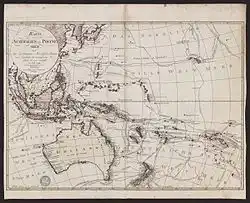
Surnames across Australasia and the Pacific Islands reflect a unique blend of resilient Indigenous naming systems and strong European colonial legacies. Australasia typically refers to Australia, New Zealand, and surrounding islands, a geographic and cultural region shaped by both ancient traditions and modern migrations. Together with the rest of the smaller island countries and territories in the Pacific Ocean, they make up Oceania.
Australasian and Pacific Islander surnames naming conventionsAustralasian and Pacific Islander surnames naming conventions
The majority of surnames in Australia and New Zealand today have British roots; during the 18th and 19th centuries, colonization introduced names like Smith, Brown, and Taylor. These names predominate in church and civil documents, although they frequently obscure more ancient Indigenous naming customs that nevertheless have cultural value. Traditional naming traditions among Aboriginal Australians and Torres Street Islanders were variable and based on kinship. Names may represent important life events, ancestry, or personal totems. Later, surnames in the European manner were forced or adopted, frequently for administrative convenience or through government agencies or missions.
Surnames were not customarily used in New Zealand's Māori communities. People were frequently referred to by their single names or patronymics (Hone Heke, which means "John, son of Heke"). Many Māori families established fixed surnames as a result of colonial influence, like Te Hira and Tawhiri; some of these families kept their tribe or ancestral names, which provided important genealogical hints. Other Pacific Islands have a wide range of surname customs. Western-style surnames are popular nowadays in locations like Tonga, Samoa, The Cook Islands and French Polynesia as well as the American state of Hawaii of, yet biblical names, primarily titles, or identifiers derived from ancestry may also serve as surnames. In the Marianas Islands and Guam, due to the influence of Spanish colonization, Spanish surnames are common, like Cruz, Santos and Camacho; in Easter Island, however, there is a trend to keep indigenous Rapa Nui surnames like Pakarati, Rapu and Riroroko. Some islands retain traditional systems that emphasize heritage and oral lineage over fixed surnames. Interestingly enough, Wong is the most common surname in French Polynesia, a surname of Cantonese origin, as Chinese families, with a lower surname diversity, often preserve patrilineal surnames, even after intermarriage.
Together, the surnames of Pacific Islanders and Australasian peoples convey tales of identity, adaptability, and resiliency that connect deeply ingrained cultures with the effects of colonization and global change.
See alsoSee also
Explore more about East Asian surnamesExplore more about East Asian surnames
- Discover the origin of your last name at MyHeritage
- Oceania - Collection Catalog at MyHeritage
- Oral Genealogy in Asia-Pacific: The Essence of Personal Identity and Tribal Connections webinar at Legacy Family Tree Webinars
- Using MyHeritage for Family History Research in Australia webinar at Legacy Family Tree Webinars
- Lesser Known Sources for Surname Searching in Australia webinar at Legacy Family Tree Webinars
- Searching for Surnames Downunder webinar at Legacy Family Tree Webinars
- Ngā aho tāne o Te Moana-nui-a-Kiwa: Revitalising connections across the Pacific with Big Y webinar at Legacy Family Tree Webinars
- Samoan genealogy (Gafa) retold webinar at Legacy Family Tree Webinars

